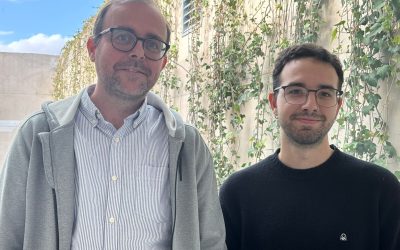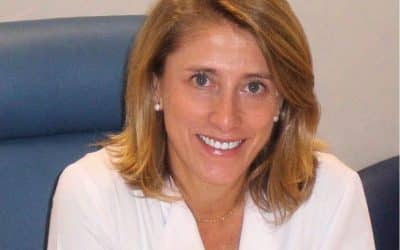- The Institute is also renewing the coordination of four of its scientific areas, adding three new groups and making numerous changes in the leadership of some of its existing groups.
- These renewals take place because they fulfil their mandate, as established in the Institute's Rules of Procedure.
The Biomedical Research Institute of Malaga and Nanomedicine Platform (IBIMA Plataforma BIONAND) held its first ordinary governing council of the year, in which numerous changes were made to the structure that directly involve, and due to the fulfilment of the mandate of the participants, according to the Internal Operating Regulations of the Institute, the management team, the coordination of the scientific areas in which the Institute is articulated, as well as the appointment of new group leaders, and the assignment of three new research groups.
The first change that takes place, in accordance with the guidelines set out in the Institute's Internal Operating Regulations, concerns the Scientific Vice-Directorate, represented by the University of Malaga for four years, while the other is held by a position belonging to the Andalusian Health Service (SAS), in this case, alternating one representative every two years on behalf of the Regional University Hospital of Malaga and the Virgen de la Victoria University Hospital.
Within this framework, the Scientific Vice-Directorate of the IBIMA BIONAND Platform has been changed to the Hospital Universitario Virgen de la Victoria, specifically, the head of the Digestive System Service and professor at the University of Malaga, Raúl J. Andrade, who will be the new scientific vice-director, replacing Pedro Serrano. Dr. Andrade is also head of the Hepatogastroenterology, Pharmacology and Translational Clinical Therapeutics group, as well as head of the Spanish DILI Registry, coordinator of the Ibero-American Network of Drug-Associated Hepatopathies (SLATINDILI) and of the European Registry of Drug-Associated Hepatopathies (Pro-Euro DILI Registry).
The scientific director of the Institute, Francisco J. Tinahones, firstly expressed his ‘enormous gratitude for the work carried out by Pedro Serrano in the scientific vice-direction of the Institute, in a term of office in which all the objectives set have been met’.
Dr. Serrano is head of the Neurology service at the Regional Hospital of Malaga and researcher in charge of the ‘Neuroimmunology and Neuroinflammation’ group at the Institute, as well as coordinating the Andalusian Network of Clinical and Translational Research in Neurology (NEURO-RECA).
Javier Márquez, Vice Scientific Director and Professor at the University of Málaga, will continue to head the other Vice Scientific Directorate for the next two years.
New coordination of four scientific areas
The Institute is articulated through 8 scientific areas together with the Malaga Oncology Research Centre (CIMO). In this sense, new scientific coordinators have also been appointed in several areas.
In ‘Area 1 dedicated to cardiovascular diseases, obesity and diabetes. Environmental determinants and lifestyle', the new coordinator for the coming years will be the head of Internal Medicine at the Regional University Hospital of Malaga, Ricardo Gómez Huelgas, who takes over from Professor at the University of Malaga and cardiologist Manuel Jiménez, who continues to be the researcher in charge of the “Cardiovascular Research for Health” group.
For its part, in ‘Area 4. Autoimmune, infectious diseases, inflammation and allergy', the UMA professor and head of the Allergology service at the Regional University Hospital of Malaga, María José Torres, leaves her position to the person who until now held the deputy coordination of the area, her current co-investigator in charge of the Institute's Allergy group, Cristobalina Mayorga, who will combine this position with the coordination of the research laboratory that IBIMA Plataforma BIONAND has at the Civil Hospital.
The two cross-cutting areas of the Institute have also undergone changes in their coordination. In this sense, the ‘IBIMA-Rare Diseases Area: Rare Diseases’ has undergone a change, with the coordination of the UMA professor, Miguel Ángel Medina, passing to Raquel Yahyaoui, the current head of the laboratory of the Hospital Materno Infantil and Neonatal Screening in Eastern Andalusia.
The other transversal area, IBIMA Tech, Health Technology and Innovation Area, has changed its coordination from the UMA professor Ezequiel Pérez-Inestrosa to the UMA professor and researcher in charge of the ‘Clinimetry in Physiotherapy’ group, Antonio Cuesta.
The scientific director of the Institute wanted to recall ‘the enormous work carried out by the area coordinators who have left their posts, because they have managed to perfectly manage a large number of professionals who are attached to the research groups that make up each area’. He also took the opportunity to ‘congratulate the new coordinators, showing them the full support of the Scientific Directorate and the rest of the IBIMA BIONAND Platform management team, so that we can continue to grow as a research institute of excellence in the coming years’.
In addition, IBIMA Plataforma BIONAND has added three new research groups, bringing the total number of research groups to 78. These include research teams specialising in Artificial Intelligence, Social Research, Haematology and Immunotherapy and Ophthalmology, belonging to the University of Malaga, the Regional University Hospital of Malaga and the Virgen de la Victoria University Hospital.
Raúl J. Andrade Bellido, es Investigador Responsable del grupo consolidado ‘Hepatogastroenterología, Farmacología y Terapéutica Clínica Traslacional’ de IBIMA Plataforma BIONAND, Catedrático y Director del Departamento de Medicina en la Facultad de Medicina de la Universidad de Málaga, Jefe de Servicio Aparato Digestivo del Hospital Universitario Virgen de la Victoria en Málaga. Además, es el Responsable del Grupo Español de Hepatopatias asociadas a medicamentos (Spanish DILI Registry), el Coordinador de la Red Ibero-Americana de Hepatopatías asociadas a medicamentos (SLATINDILI) y también del Registro europeo de Hepatopatías asociadas a Medicamentos (Pro-Euro DILI Registry). Chair de la COST Action CA17112 – Prospective European Drug-Induced Liver Injury Network (PRO-EURO DILI NET) y del EASL DHILI Consortium. Horizonte2020. Framework Programme (European Union).



